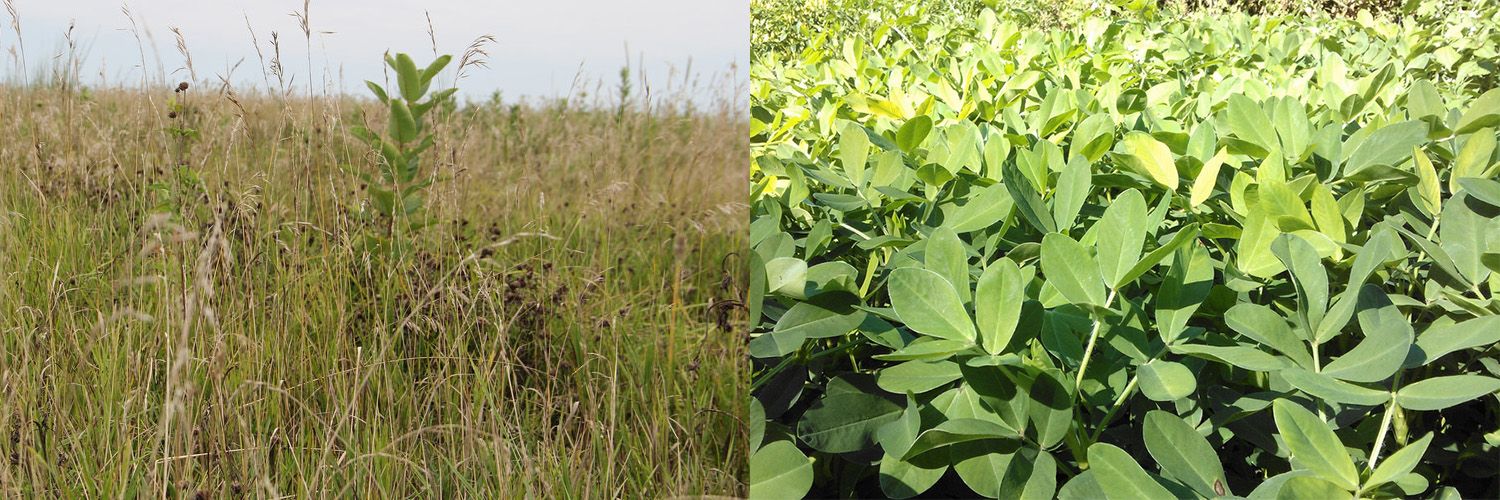Field Station 2 | Toward Ecological Sovereignty

This traveling seminar considers the ongoing geological, biological, and social formation of the Midwest in order to locate the historical, political and philosophical roots of the environmental crisis as it manifests in this territory. The seminar unfolds over five days in the landscape marked physically by the action of glaciers, shaped by the enduring presence of Indigenous nations, and defined politically by the colonization that intensified after the 1832 Black Hawk conflict. Bringing together Native leaders, local residents, scholars, activists, and artists for a series of lectures, tours, and conversations, the seminar aims to understand the origins and effects of the present engineered landscape and build alliances for more just and sustainable futures.
The seminar concludes in Saukenuk, the center of the Sauk homelands and the largest city in Illinois for the first decades of the 19th century. It was the need to plant the fields around Saukenuk that led Black Hawk’s band to ignore the provisions of a fraudulent treaty and cross the Mississippi in April 1832, triggering the events culminating in the Bad Axe Massacre. Three years later, John Deere began manufacturing the eponymous plow that would transform the prairie into commodity agriculture. Yet the catastrophic environmental transformations wrought by settlement have not exterminated Indigenous political and ecological practices, which have persisted and adapted to what Kyle Powys White calls the post-apocalyptic conditions of the present. Concluding events celebrate and share practices of Indigenous sovereignty and culminate with community cookout at the Black Hawk State Historic Site.
- Sunday, Sep 29, 2019
10:00 am - 12:00 am
Sovereign Foods, Languages and Futures Part I
Black Hawk State Historic Site, 1510 46th Avenue, Rock Island, IL 61201Regina Tsosie & Josie Ironshield, Native American Coalition of the Quad Cities and Sage Sisters Of Solidarity
Chi-Nations Youth Council, Chicago, IL
Meskwaki Historic Preservation and Meskwaki Language Preservation, Tama, IARSVP via Eventbrite: http://bit.ly/sovereignfoods1
1:00 pm - 3:00 pm
Sovereign Foods, Languages and Futures Part II
Wallenberg Hall, Augustana College, 3520 7th Avenue, Rock Island, Illinois 61201Jacki Rand, University of Iowa / Facilitator
Regina Tsosie & Josie Ironshield, Native American Coalition of the Quad Cities, and Sage Sisters Of Solidarity
Chi-Nations Youth Council, Chicago, IL
Clint Carroll, University of Colorado, Boulder
Donetta Wanatee, Meskwaki Food Sovereignty Initiative
Christine Nobiss, Seeding Sovereignty
Yolanda Pushetonequa, Meskwaki Language Preservation
Mary Young Bear, Meskwaki Historic PreservationRSVP via Eventbrite: http://bit.ly/sovereignfoods2
3:30 pm - 5:00 pm
Knowing the Land: Indigenous Strategies for Revitalization and Adaptation
Wallenberg Hall, Augustana College, 3520 7th Avenue, Rock Island, Illinois 61201Lecture by Clint Carroll
This talk will addresses challenges that Indigenous Nations face regarding the interrelated processes of cultural knowledge revitalization and environmental adaptation. For example, how can methods for transmitting traditional knowledge and the management of local resources adapt to radically different social and environmental circumstances? How can tribal elders effectively communicate their knowledge and perspectives on pressing issues like the preservation of medicinal plants to tribal officials, youth, and the general tribal population? Based on my past and current work with Cherokee people in Oklahoma, I will explore possible strategies for overcoming such challenges, as well as current and future research endeavors that further seek to address political-ecological issues in the Cherokee Nation.
Clint Carroll is Associate Professor of Ethnic Studies at the University of Colorado-Boulder. He received his doctorate from the University of California-Berkeley in Environmental Science, Policy, and Management. A citizen of the Cherokee Nation, his work with Cherokee government officials and rural communities in northeastern Oklahoma explores how tribal natural resource management is informed by traditional forms of decision-making and local environmental knowledge. His first book, Roots of Our Renewal: Ethnobotany and Cherokee Environmental Governance (2015), is an historical and ethnographic account of this work since 2004. Carroll has received fellowships from the Ford Foundation, the U.S. Environmental Protection Agency, and the National Science Foundation. He was a Fellow of the Native Investigator Development Program, funded by the National Institutes of Health (2014-16). His work has been published in Ethnohistory, Geoforum, and Environmental Research. He is an active member of the Native American and Indigenous Studies Association and the Society for Applied Anthropology.
RSVP via Event Brite: http://bit.ly/clintcarroll
5:00 pm - 5:30 am
Closing Ceremony
5:30 pm - 7:30 pm
Community Cookout at Black Hawk State Historic Site
Tickets available for $10; catering by Invictus Voices
